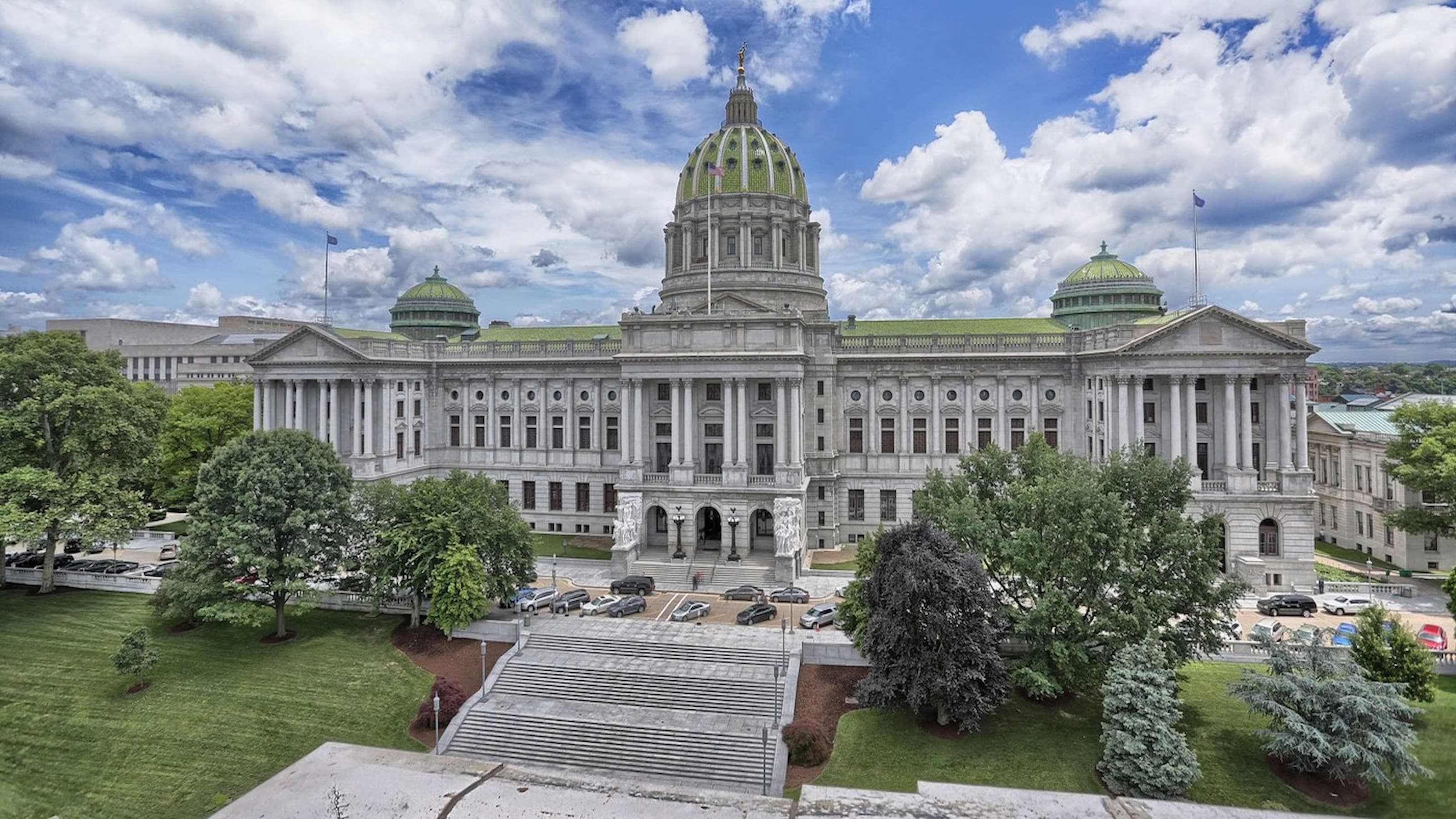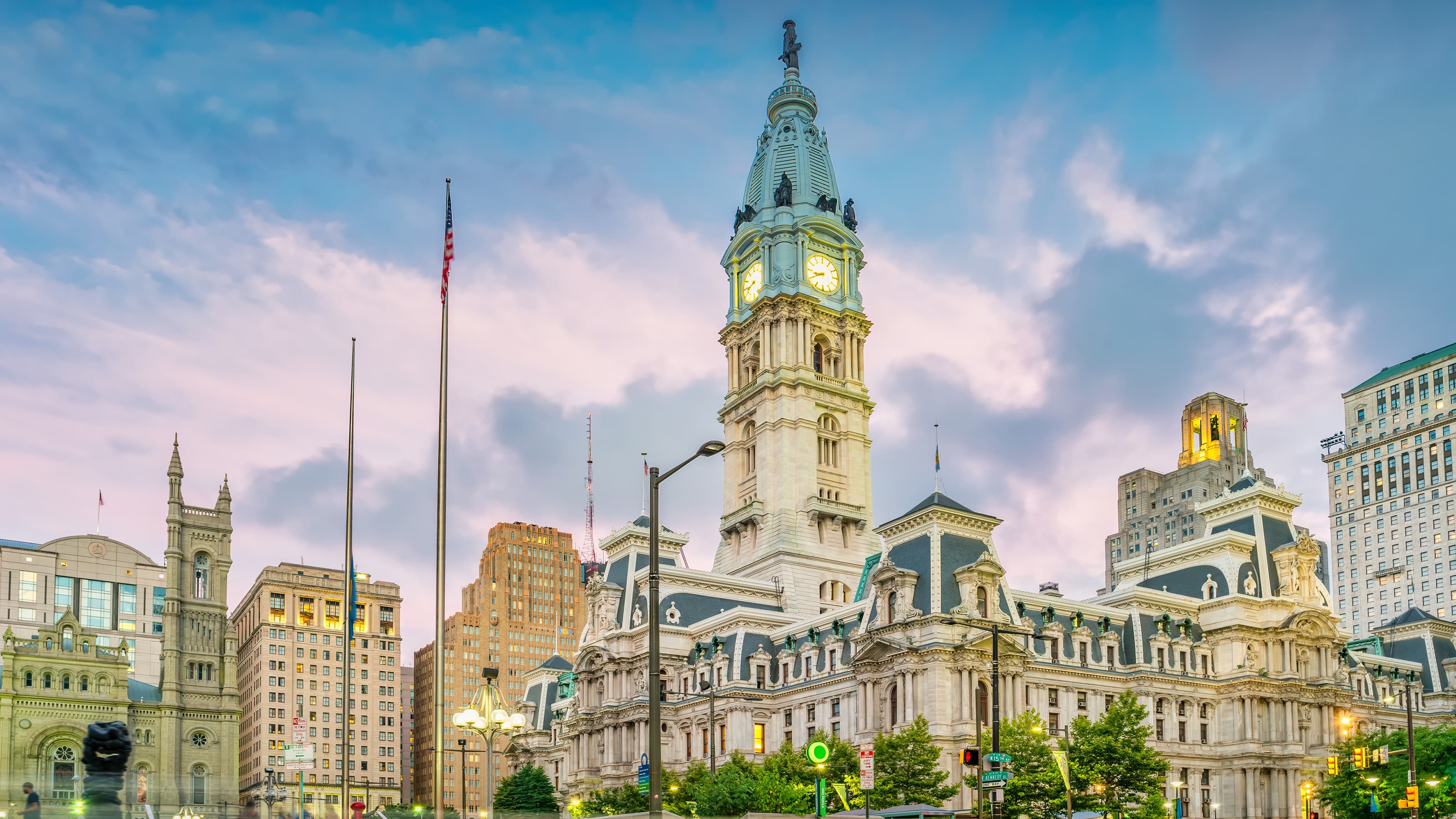Inauguration Day 2021: What to Expect at Joe Biden’s Presidential Inauguration
President-elect Joe Biden will take the oath of office on Jan. 20. But what will his inauguration ceremony look like amid a pandemic? Randall M. Miller, Ph.D., professor emeritus of history, shares his insight.
 President-elect Joe Biden shared lessons on leadership at Saint Joseph’s University in April 2018 as part of the Haub School of Business’ Evelyn. S. and Anthony M. ’60 Carfagno Endowed Lecture series.
President-elect Joe Biden shared lessons on leadership at Saint Joseph’s University in April 2018 as part of the Haub School of Business’ Evelyn. S. and Anthony M. ’60 Carfagno Endowed Lecture series.
Editor's Note: This interview was conducted prior to the unrest that occurred in our nation's capital on Jan. 6. Protocols surrounding inauguration safety and security will have changed in light of the state of emergency in Washington, D.C., which extends to Jan. 21.
The presidential inauguration is one of the most important traditions of American democracy, signifying the peaceful transfer of power from one leader to the next. Held on Jan. 20, it’s the day when the president-elect and vice president-elect are sworn into office and officially start their jobs. It’s also a day filled with pomp and circumstance, with activities such as the inaugural balls and a parade along Pennsylvania Avenue.
However, with the pandemic still looming large, this year’s inauguration will look vastly different from previous ones. We spoke with Randall M. Miller, Ph.D., professor emeritus of history, about the history of presidential inaugurations and what significance this year’s inauguration holds for the Biden administration and the rest of the nation.
What is the purpose of the presidential inauguration?
The purpose of the presidential inauguration is quite simple in terms of the Constitution. The Constitution only provides that the president shall take an oath of office, as described in Article II, Section 1. Besides that, there is no other provision that states what else has to happen at the inauguration, whether it has to be a public event, who has to be present or who will administer the oath.
However, the inauguration has acquired other important functions. It certainly has a political function. It’s a recognition of a new party coming in and a peaceful transfer of power. As a public event, this carries tremendous political weight because the public can actually witness it, which then provides legitimacy and credibility for the incoming president. There’s also a symbolic importance with the ritualization of the inaugural process, which has developed over time and has become an expected part of the confirmation and affirmation of the new president.
Why do we wait until January to swear in a new president?
It wasn’t until the 1930s that there was a constitutional amendment that moved up the inauguration to January. Originally, the operation was in March. We had this long hiatus between the election and the swearing-in of the president. This created problems because the president-elect had no authority whatsoever, while you had a lame duck president for several months who is lacking political power because he’s leaving office.
In the case of the Great Depression, the country had to wait for incoming President Franklin D. Roosevelt to execute action, and they recognized that this long gap was dysfunctional and even dangerous. So, there was this move, almost by acclamation, that the inauguration would take place on Jan. 20 at noon. There are a lot of other details that have been worked out as well, but the key was to keep the process as clean and clear as possible so that people would understand and accept that the new president is indeed the president of the United States.
What can we expect from Inauguration Day compared to years past?
The pandemic basically dictated what the inauguration is going to be like this year. There’s usually so much hoopla surrounding the inauguration — having a big gathering outside the Capitol, the huge crowds, the extended performances. But in the middle of a pandemic, it doesn’t make sense to have that because it could create a “superspreader” event. Minimizing the coronavirus risk and being the “responsible” president is also part of Biden’s political identity.
Instead, what the Biden team is planning is a scaled-back version of the event, similar to the Democratic National Convention in terms of its format. It will still be a public event so that people can witness the swearing-in ceremony, but a lot of it is going to be virtual, including the traditional inauguration parade down Pennsylvania Avenue. I also think it will be more diverse in every sense of the word, which is one of the Biden themes. And with it being virtual, perhaps it will be more participatory.
Minimizing the coronavirus risk and being the ‘responsible’ president is also part of Biden’s political identity.”
Randall M. Miller, Ph.D.
professor emeritus of historyWhat can we expect from President-elect Joe Biden’s inaugural address?
We can make good guesses about what he’ll likely say. A possible major theme in his address is healing — healing in the political, social and physical sense, and, more specifically, the administration helping us heal with good policies related to the pandemic, the economy and the divisions between the country.
Thomas Jefferson’s inaugural address also had that same theme. Some people argue that his 1801 address was the most important one because it was the first time that there was a political opposition that actually won the election and, in effect, sent the sitting president packing. People didn’t know what to do with that. There were threats that somewhat echoed some of today’s, such as having the militia called out to prevent the Jeffersonians from coming in because the world would be turned upside down. I could almost imagine Biden referencing Jefferson’s address and maybe even taking one or two lines, such as, “We are all federalists, we are all republicans.” That is, we all agree on the fundamentals and the Constitution, and because we agree on the big things that matter, we can disagree on policies.
What policy changes will the Biden administration prioritize and push out soon after the inauguration?
One of the things they will prioritize is coming up with a unified, science-based policy regarding the pandemic, including how they’re going to deal with the rollout of the vaccination and what the role of the government will be. They will also prioritize rebuilding the economy. They would probably push for another stimulus package early in the year, as well as structural stimulus to address income and wealth gaps. Biden will also talk about shifts in foreign policy; instead of doing an America-first policy, he’s going to try to restore good relations and act collectively. He’s also going to talk about climate change and environmental justice because it’s a big part of his political identity and support.
What major challenges is the Biden administration facing when it comes to delivering their agenda?
The Biden administration is facing two big challenges. One is the extent to which the people who distrust Biden and the process by which he was selected will come around and accept his credibility as president. The other side of the challenge is Senate Majority Leader Mitch McConnell, assuming that the Republicans will retain control of the Senate. Will McConnell do to Biden what he did to President Barack Obama? McConnell describes himself as the “Grim Reaper,” and he made sure anything Obama proposed would fail in the Senate.
Should we expect to see a series of executive orders from Biden after being sworn into office?
He’s going to do a lot of things that he can do in terms of presidential prerogative. He can roll back many of the executive orders that President Donald Trump made, such as those relating to the deregulation of environmental safeguards. There are expectations from his staff and political supporters that he will use that executive power, but also that he will stay calm in doing so. How he conducts himself will count almost as much as what policies he pushes. He promises to restore the dignity and integrity of the office, which will enhance his ability to persuade people to accept his leadership.



